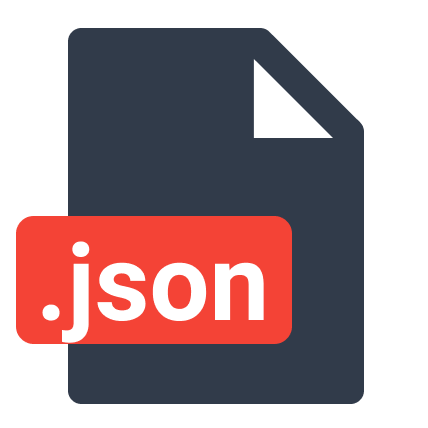At the granular level, JSON consists of 6 data types.
The first four data types (string, number, boolean and null) can be referred to as simple data types. The other two data types (object and array) can be referred to as complex data types.
- string
- number
- boolean
- null/empty
- object
- array
Let’s learn about each data type one by one.
1. String
A string is a sequence of zero or more Unicode characters, enclosed between " and " (double quotes). Strings wrapped in single quotes ' are not valid.
{
"color" : "Purple"
}JSON Strings can contain the following backslash-escaped characters:
\"– Double quote\\– Backslash\/– Forward slash\b– Backspace\f– Form feed\n– Newline\r– Carriage return\t– Tab\u– Trailed by four hex digits
2. Number
JSON numbers follow JavaScript’s double-precision floating-point format.
- Represented in
base 10with no superfluous leading zeros (e.g. 67, 1, 100). - Include digits between 0 and 9.
- Can be a negative number (e.g.
-10. - Can be a fraction (e.g.
.5). - Can also have an exponent of 10, prefixed by
eorEwith a plus or minus sign to indicate positive or negative exponentiation. - Octal and hexadecimal formats are not supported.
- Can not have a value of NaN (Not A Number) or Infinity.
{
"number_1" : 210,
"number_2" : -210,
"number_3" : 21.05,
"number_4" : 1.0E+2
}
3. Boolean
Booleans values can be either true or false. Boolean values are not surrounded by quotes and will be treated as string values.
{
"visibility" : true
}4. null
Although technically not a value Type, null is a special value in JSON. When there is no value to assign to a key, it can be treated as null.
null value should not be surrounded by quotes.
{
"visibility" : true,
"popularity" : null, //empty
"id" : 210
}5. Object
- An unordered set of name/value pairs inserted between {} (curly braces).
- An object can contain zero or more name/value pairs.
- Multiple name/value pairs are separated by a , (comma).
{
"visibility" : true,
"popularity" : "immense",
"id" : 210
}6. Array
- An ordered collection of values.
- Begins with
[(left bracket) and ends with](right bracket). - It’s values are separated by
,(comma).
{
"ids" : ["1","2","3"]
}
//or
{
"ids" : [
{"id" : 1},
{"id" : 2},
{"id" : 3}
]
}
Comments